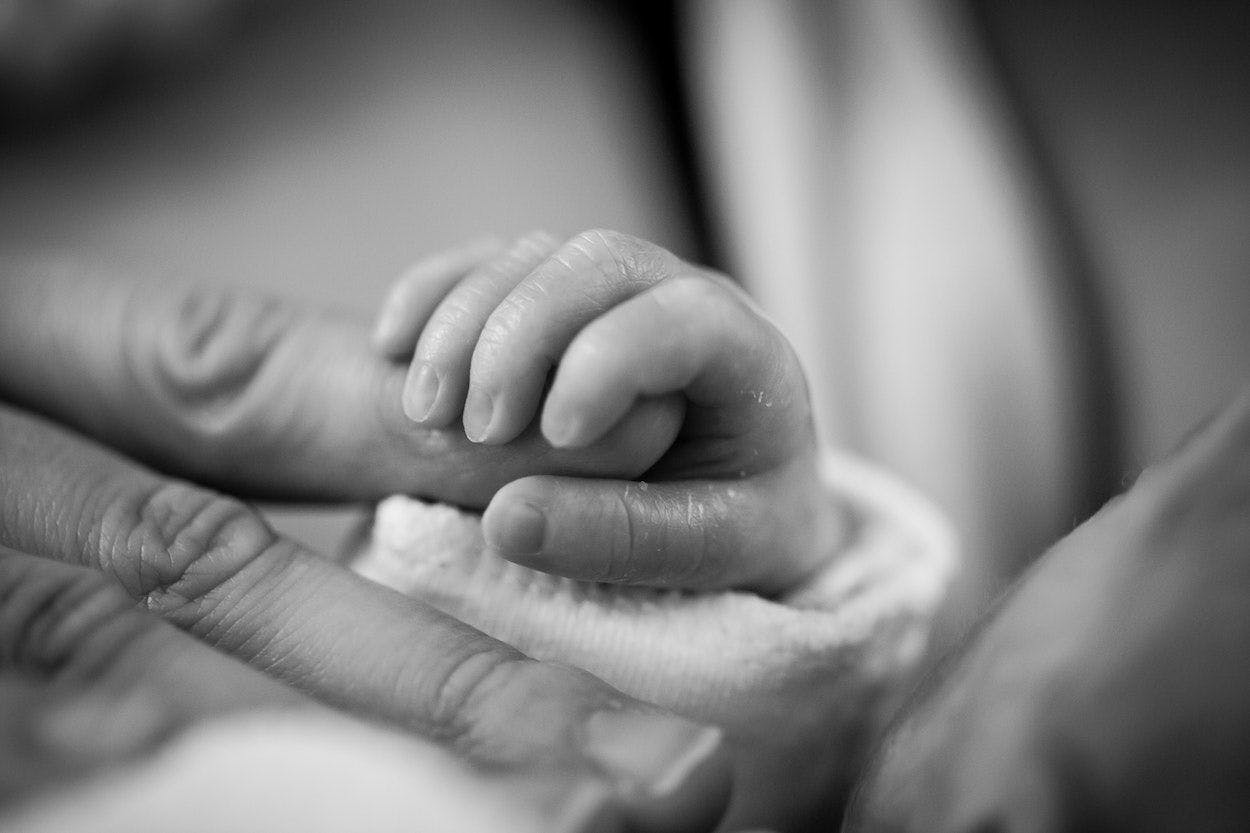
The joy of having a baby can sometimes be tainted by complications, pain, and alarming surgical interventions. What can new mothers do to help deal with terrifying flashbacks?
It’s a quiet evening and my baby is in bed, safe and sound. I’m watching TV and an advert for a medical documentary flashes on screen. The effect is almost immediate – my stomach drops like a lead weight, and my chest tightens. Although I’m on the sofa in my lounge, mentally I’m back in hospital, surrounded by the bright lights of the surgical theatre, heart monitors, and the panicked faces of medical staff.
Post-traumatic stress disorder (PTSD) is a complex anxiety disorder caused by frightening, stressful events. It was recognised as a major problem during the First World War, when soldiers would experience ‘shell shock’ after witnessing the horrors of battle. PTSD is still associated with men and war – and it wasn’t until 1994 that trauma as a consequence of birth was medically acknowledged by the American Psychiatric Association.
However, birth trauma is common. One study in Birth: Issues in Perinatal Care found 45% of women experience a traumatic birth, defined as involving complications, pain, and medical interventions. Up to 6% develop PTSD, although this is likely a conservative figure, as many new mothers find talking about it too triggering. The symptoms are debilitating, ranging from vivid, involuntary flashbacks to panic attacks and nightmares.
Alison Bruce, a psychotherapist and spokesperson for the Association of Child Psychotherapists, says women with trauma may feel fear, and suffer overwhelming memories and thoughts about the birth, which occur without warning.
For months after my son’s birth, ordinary situations were enough to trigger traumatic flashbacks. Finding the yellow sleepsuit my son was wearing when he was taken to intensive care. Taking him to the doctor for his routine vaccinations. Although his first birthday party was a joyful celebration with friends and family, I couldn’t help thinking about the previous year’s events – a 70-hour labour, and an emergency caesarean section.
“Every birth is at some level a trauma, but especially when there are medical complications,” says Alison Bruce. “Often, the birthing experience can be scary or disappointing, necessitating, at best, stitches, and at worst emergency C-sections. The pain the mother may endure can be terrifying.”
Birth trauma triggers can be deeply distressing. Sudden, upsetting flashbacks and emotions – over which someone has no control – can lead to anxiety and depression. PTSD can also cause sleeping problems and behavioural changes, particularly if the mother tries to avoid situations that trigger painful memories.
Trauma can also affect how a new mother bonds with their baby, which can lead to feelings of guilt. Some may experience ‘hyperarousal’ symptoms, which include feeling angry, irritable, or jumpy. Additionally, these problems can occur at a time when everyone expects new mothers to be happy, which can be deeply isolating, and lead to low self-esteem.

However, there are steps you can take to cope with birth trauma and triggers.
Seek professional support
When we experience a traumatic event, the way we form memories becomes disrupted as the brain tries to protect itself. However, this can make it difficult for us to process what has happened. Therapy can help people work through these difficult events in a safe space.
With the support of a therapist, I gradually recalled my birth experience, and talked through my emotions. Although the trauma hasn’t fully disappeared, it is far less intense. My therapist likened the process to clearing out a towel cupboard. If you throw them in haphazardly, they’ll likely fall out when you’re not expecting it and cause havoc. This is less likely if you take one out at a time and fold it neatly before putting it back.
I was lucky enough to be supported by my local NHS perinatal mental health team. Sadly, too few women are able to access these essential services. Often, it is a postcode lottery whether someone is able to get support, because of a lack of funding and local investment in perinatal mental health care, which means that many pregnant women and new parents are unable to get the help they need.
However, if you’re struggling psychologically during pregnancy or after childbirth, you should speak to your midwife, health visitor, or doctor. “Communicating how one is feeling is absolutely key in the postpartum period,” says Alison. “Contacting the maternity support staff and the perinatal teams is an important step to accessing support.”
Try grounding techniques
During flashbacks, I used grounding techniques to bring me back to reality. Out loud, I would list five things I could see, then name four I could touch, three I could hear, two I could smell, and one I could taste. Although these techniques don’t ‘heal’ trauma, they can provide a calming distraction.
Breathing techniques can also help. When we are frightened, we tend to breathe faster. This increases feelings of fear and panic, so it can help to concentrate on breathing slowly in and out, while counting to five.

Carry a special object
Some may find it helpful to touch or look at a particular object when they’re feeling triggered. This might be a photo, a piece of jewellery, or another item that brings their focus back to their immediate surroundings.
Speak to loved ones
If you’re struggling with your mental health after childbirth, you’re not alone. Speaking to friends or family about how you feel can help you work through difficult emotions and reduce loneliness.
“Expressing how you’re feeling and accessing community support is of paramount importance,” says Alison. “Local baby groups can be key in mitigating the intense feelings of isolation that can occur.”
And remember, there is no right or wrong way to feel. New parenthood comes with pressure to be joyful, but this isn’t realistic. With the right support, though, things will get better.

